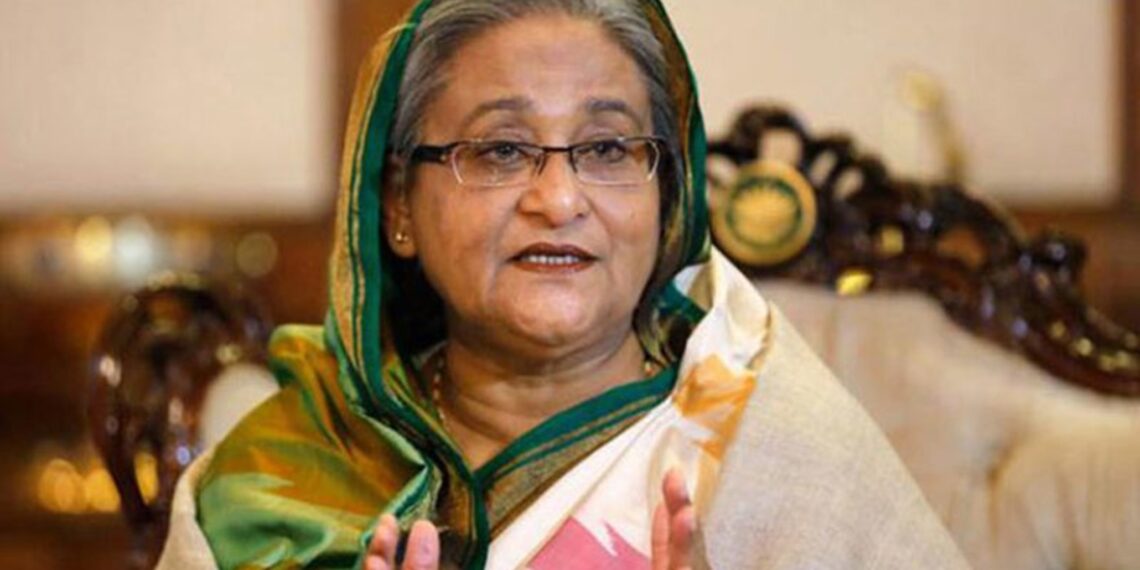The time has come to acknowledge that Sheikh Hasina, the ousted former Prime Minister of Bangladesh, will not face trial in Dhaka. Instead, the international community will hold her accountable for crimes against humanity in the International Criminal Court (ICC) at The Hague.
Under the leadership of Nobel laureate Dr. Muhammad Yunus, Bangladesh’s Interim Government is preparing to initiate legal action against Hasina, awaiting the final report from the Office of the United Nations High Commissioner for Human Rights (OHCHR).
This investigation focuses on the tragic deaths of over a thousand students and protesters during the Monsoon Revolution of July and August. Once the OHCHR report is finalised, the Interim Government plans to file a case with the ICC, starting the long process of holding Hasina accountable for her actions.
The idea to pursue international legal action was set into motion in September when Dr. Yunus attended the 79th session of the UN General Assembly in New York. During the summit, he engaged with Volker Türk, the head of OHCHR, and Chief Prosecutor Karim Asad Ahmad Khan. The decision to prosecute Hasina in an international court was made to avoid the controversy of bringing legal proceedings within Bangladesh itself, where political pressures might undermine the pursuit of justice.
Hasina fled Bangladesh just hours before protesters stormed Gono Bhaban, the official Prime Minister’s residence, on August 5. She boarded a Bangladesh Air Force transport aircraft and reached Delhi, where she has been living in exile ever since, in a secured military base near the Indian capital with her sister, Sheikh Rehana.
It was reported that Hasina has applied for asylum in a couple of Western countries. Unfortunately, no country has granted permission. Her choices were London (UK) and Washington DC (US).
She attempted to flee to London, where her sister owns a house, or to Washington DC, where her son Sajeeb Wazed Joy resides. Unfortunately, both countries denied her entry. The US swiftly revoked her 10-year multiple-entry visa, and the British government did not respond to her request. European nations were equally unyielding in offering asylum.
Hasina has lately become an outspoken critic of the U.S., accusing Washington of attempting to secure a military base in Bangladesh in exchange for political support. Washington scoffed off the allegation and said no such proposal was ever given to Dhaka.
India, too, has remained quiet on the matter of Hasina’s asylum. Yet, despite the embarrassment it causes the Indian administration, India has no choice but to provide her with accommodation and security, allowing her to stay in a safe house on a military base. It is a rare instance for India to offer political asylum, and it is clear that Hasina’s stay in India will be a prolonged one.
As the ICC proceedings unfold, the court will eventually seek her extradition to the Netherlands to face charges of crimes against humanity. India, as a signatory of the ICC, will have no legal grounds to resist the extradition once the court issues the request. Additionally, India cannot dispute the legitimacy of the OHCHR’s probe, as the ICC will be responsible for carrying out the trial.
Should Hasina be found guilty, she could face a lengthy prison sentence or even life imprisonment in a European jail.
Bangladesh is expected to bring serious charges against her, including widespread human rights abuses, enforced disappearances, extrajudicial killings, and the illegal detention of dissidents in secret prisons. However, the ICC is unlikely to pursue charges related to her extensive corruption, nepotism, and favouritism during her autocratic rule.
Despite the impending trial, Hasina will likely go down in history for other reasons. She will be remembered for being the longest-serving female prime minister, as well as for overseeing the deaths of countless students and protesters during the Monsoon Revolution.
The journey of justice is long and uncertain, but it is clear that the international community is determined to hold Hasina accountable for her actions. In the end, it will be at The Hague, not Dhaka, where she will finally face the consequences of her rule.















